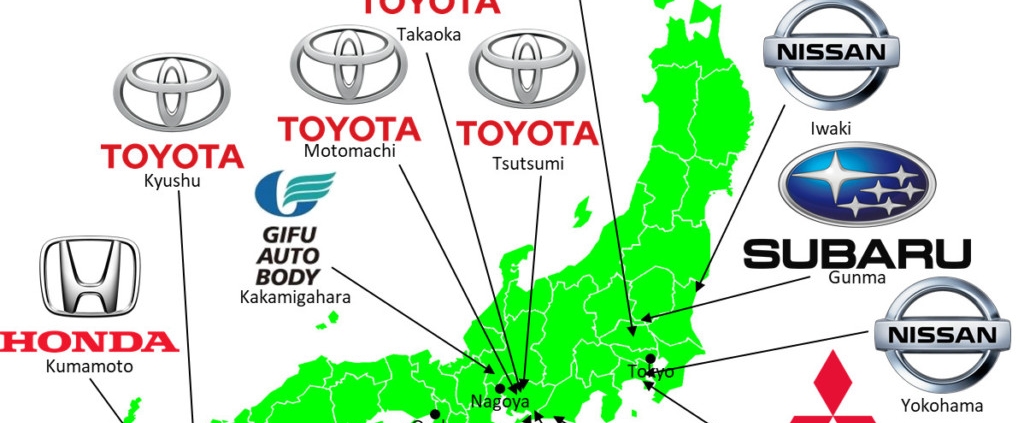Japanese Car Brands
Japanese car brands have garnered a solid reputation for their reliability, efficiency, and top-notch engineering. From reliable sedans to cutting-edge sports cars, Japanese car manufacturers continue to dominate the automotive industry with their innovative designs and advanced technologies.
When it comes to Japanese car brands, there are a few that stand out for their reliability and innovation. But before diving into the details, it’s always a good idea to run a VIN check to ensure you have all the necessary information about the vehicle’s history and authenticity.
The breakthrough for the Japanese auto industry came after World War II. Japan, devastated by the war, experienced a period of rapid economic growth and reconstruction. The Japanese government recognized the auto industry’s potential as a means to boost the country’s economy and supported its development through various policies and investment incentives.
As a result, major Japanese automakers such as Toyota, Nissan, Honda, and Mazda started emerging in the 1950s. These companies focused on producing small, fuel-efficient vehicles that suited the Japanese market’s needs and demands. They implemented innovative manufacturing techniques like the Toyota Production System, which revolutionized the industry by introducing concepts like just-in-time manufacturing and continuous improvement.
With the rapid expansion of the Japanese auto industry and an increasing number of vehicles on the roads, the need for efficient identification and registration systems became apparent, especially when it comes to combatting crime. In response to this, the Japanese government introduced the Vehicle Identification Number (VIN) system and a more organized license plate numbering system at some point — both of which were first introduced in North America.
Despite the post-war challenges, the industry rebounded through the 50s and 60s. Companies like Toyota and Nissan focused on producing small, fuel-efficient cars that were affordable for the average Japanese consumer. These compact cars rapidly gained popularity, and by the late 1960s, Japanese automakers were exporting their vehicles to international markets, particularly the United States.
The 1970s were a significant turning point for the Japanese auto industry. The 1973 oil crisis highlighted the importance of fuel efficiency, and Japanese automakers were well-positioned with their compact cars. The industry experienced exponential growth during this time, with Japanese cars becoming known for their reliability, fuel efficiency, and affordability.
Japanese automakers continued to innovate and expand their market share in the following decades. Toyota introduced the first mass-produced hybrid car, the Prius, in 1997, which catapulted the company to the forefront of green automotive technology. The 1990s also saw the rise of luxury Japanese brands like Lexus and Acura, which challenged traditional European luxury brands.
However, the Japanese auto industry faced significant challenges in the 2000s. The global financial crisis of 2008 affected car sales worldwide, including in Japan. Additionally, intense competition from South Korean and Chinese automakers posed a threat to Japanese manufacturers.
In recent years, Japanese automakers have focused on developing electric vehicles (EVs) and autonomous driving technologies to stay at the forefront of automotive innovation. They continue to dominate global markets, particularly in the compact car and hybrid segments.
The Japanese auto industry has come a long way since its humble beginnings in the early 1900s. Through continuous innovation, relentless pursuit of quality, and a focus on customer satisfaction, Japanese automakers have established themselves as leaders in the global automotive industry.
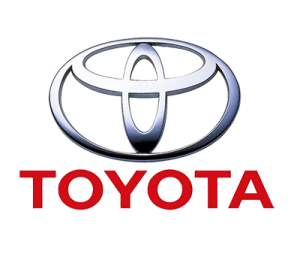 Toyota was founded in 1937 by Kiichiro Toyoda as a spin-off from his father’s company, Toyoda Automatic Loom Works. It quickly grew to become one of the largest automakers in the world, known for its reliable and fuel-efficient vehicles. By the early 2000s, Toyota faced significant challenges due to a series of recalls and supply chain disruptions, but it managed to recover and regain its position as a leading player in the global automotive market.
Toyota was founded in 1937 by Kiichiro Toyoda as a spin-off from his father’s company, Toyoda Automatic Loom Works. It quickly grew to become one of the largest automakers in the world, known for its reliable and fuel-efficient vehicles. By the early 2000s, Toyota faced significant challenges due to a series of recalls and supply chain disruptions, but it managed to recover and regain its position as a leading player in the global automotive market.
In recent years, Toyota has been focusing on expanding its lineup of electric and hybrid vehicles as part of its commitment to sustainability. The company introduced popular models like the Prius and now offers a wide range of hybrid options across its brands. Additionally, Toyota has been investing heavily in autonomous vehicle technology and has partnered with other companies to develop self-driving cars. Despite the challenges posed by the COVID-19 pandemic, Toyota has shown resilience and continues to innovate and adapt to the changing market demands.
 Honda is a Japanese automobile manufacturer that was founded in 1948 by Soichiro Honda. The company initially produced motorcycles and later expanded to include automobiles. Honda quickly gained popularity for its reliable and fuel-efficient vehicles, and by the 1970s, it had become a major player in the global automotive market.
As of the latest, Honda has focused on developing hybrid and electric vehicles to meet the growing demand for more environmentally friendly transportation options. The company has also made significant investments in autonomous driving technologies and has been collaborating with other companies to develop self-driving cars. This is despite the fact that the company experienced a decline in sales and production as a result of disrupted supply chains and decreased consumer demand.
Honda is a Japanese automobile manufacturer that was founded in 1948 by Soichiro Honda. The company initially produced motorcycles and later expanded to include automobiles. Honda quickly gained popularity for its reliable and fuel-efficient vehicles, and by the 1970s, it had become a major player in the global automotive market.
As of the latest, Honda has focused on developing hybrid and electric vehicles to meet the growing demand for more environmentally friendly transportation options. The company has also made significant investments in autonomous driving technologies and has been collaborating with other companies to develop self-driving cars. This is despite the fact that the company experienced a decline in sales and production as a result of disrupted supply chains and decreased consumer demand.
 Subaru is a Japanese automobile manufacturer that was founded in 1953. They are known for producing reliable and durable vehicles, especially their line of all-wheel drive vehicles. Subaru has grown steadily over the years and has gained a reputation for their commitment to safety and environmental sustainability.
Subaru is a Japanese automobile manufacturer that was founded in 1953. They are known for producing reliable and durable vehicles, especially their line of all-wheel drive vehicles. Subaru has grown steadily over the years and has gained a reputation for their commitment to safety and environmental sustainability.
Lately, Subaru has experienced significant growth and has seen record-breaking sales numbers. They have focused on expanding their presence in key markets such as the United States, where they have partnered with other automobile manufacturers to further their reach. Subaru has also made advancements in their technology, including the introduction of hybrid and electric models to cater to the growing demand for eco-friendly vehicles.
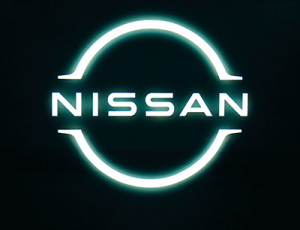 Nissan, a Japanese automaker, was founded in 1933 and has since become one of the largest car manufacturers in the world. Known for its innovation and technological advancements, Nissan has produced iconic models such as the Nissan GT-R and the Nissan Leaf, the world’s best-selling electric car.
Nissan, a Japanese automaker, was founded in 1933 and has since become one of the largest car manufacturers in the world. Known for its innovation and technological advancements, Nissan has produced iconic models such as the Nissan GT-R and the Nissan Leaf, the world’s best-selling electric car.
Nissan announced plans to further cut production and models as part of its restructuring efforts to streamline operations and achieve profitability. The company aims to focus on core markets, including China, the United States, and Japan, while reducing its presence in other regions. Additionally, Nissan is working on expanding its electric vehicle lineup and introducing advanced autonomous driving technologies to regain its position in the competitive automotive market.
 Mazda was founded in 1920 in Hiroshima, Japan, and initially produced three-wheeled trucks. In the 1960s, they began producing small passenger cars and gained recognition for their rotary engine technology. Throughout the years, Mazda became known for their sporty and fuel-efficient vehicles.
Mazda was founded in 1920 in Hiroshima, Japan, and initially produced three-wheeled trucks. In the 1960s, they began producing small passenger cars and gained recognition for their rotary engine technology. Throughout the years, Mazda became known for their sporty and fuel-efficient vehicles.
Mazda has been focusing on electric vehicles to align with the growing demand for sustainable transportation. In 2020, they introduced their first fully electric model, the Mazda MX-30. Additionally, Mazda has been implementing advanced safety features and driver-assistance technologies in their newer models. Despite challenges faced by the automotive industry, Mazda continues to innovate and evolve to meet the changing needs of consumers.
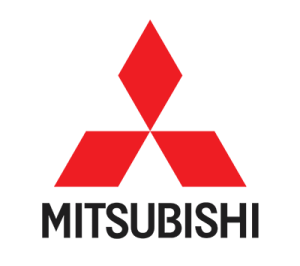 Mitsubishi was founded in 1870 as a shipping company in Japan and later expanded into various industries including mining, shipbuilding, and automotive. In the 1970s and 1980s, Mitsubishi became known for its high-performance vehicles and entered into partnerships with other automakers. In the past few years, Mitsubishi has faced various challenges, including a scandal in 2016 where it was revealed that the company had been manipulating fuel economy data. As a result, Mitsubishi’s reputation was significantly damaged, and the company experienced a decline in sales.
Mitsubishi was founded in 1870 as a shipping company in Japan and later expanded into various industries including mining, shipbuilding, and automotive. In the 1970s and 1980s, Mitsubishi became known for its high-performance vehicles and entered into partnerships with other automakers. In the past few years, Mitsubishi has faced various challenges, including a scandal in 2016 where it was revealed that the company had been manipulating fuel economy data. As a result, Mitsubishi’s reputation was significantly damaged, and the company experienced a decline in sales.
Mitsubishi has been working on rebuilding its image and has introduced new electric and hybrid vehicles to cater to the growing demand for eco-friendly cars. In 2021, the company announced plans to invest heavily in electric vehicles and aims to have electrified vehicles account for 50% of its sales by 2030. Mitsubishi is also focusing on expanding its presence in emerging markets such as India, where it plans to launch multiple new models in the coming years.
 Suzuki is a Japanese automotive company founded in 1909 by Michio Suzuki. It started as a loom manufacturer and later expanded to produce motorcycles and automobiles. In the 1980s, Suzuki became known for its popular line of small cars and off-road vehicles. Suzuki has faced some challenges in the market. It struggled to gain a significant market share in countries like the United States and Europe. However, the company has experienced growth in emerging markets like India and has focused on producing more fuel-efficient vehicles to stay competitive in the global market.
Suzuki is a Japanese automotive company founded in 1909 by Michio Suzuki. It started as a loom manufacturer and later expanded to produce motorcycles and automobiles. In the 1980s, Suzuki became known for its popular line of small cars and off-road vehicles. Suzuki has faced some challenges in the market. It struggled to gain a significant market share in countries like the United States and Europe. However, the company has experienced growth in emerging markets like India and has focused on producing more fuel-efficient vehicles to stay competitive in the global market.
The company has also made advancements in electric and hybrid vehicle technology, with the launch of the Suzuki Across plug-in hybrid SUV. Additionally, Suzuki has been collaborating with other automakers to develop new technologies and expand its presence in international markets.
 Lexus is a luxury car brand that was launched by Toyota in 1989. It was created to compete with other high-end car manufacturers such as Mercedes-Benz and BMW. Lexus quickly gained popularity for its reliability, comfort, and stylish designs.
Lexus is a luxury car brand that was launched by Toyota in 1989. It was created to compete with other high-end car manufacturers such as Mercedes-Benz and BMW. Lexus quickly gained popularity for its reliability, comfort, and stylish designs.
Since 2021, the market for Lexus cars has continued to be strong. The brand enjoys a loyal customer base and has successfully expanded its offerings to include hybrid and electric vehicles. Lexus vehicles are known for their advanced technology, refined interiors, and smooth performance.
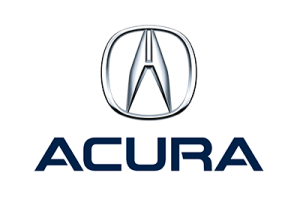 Acura is a luxury car brand that was launched by the Japanese automaker Honda in 1986. It was introduced to the North American market as a way for Honda to compete with other luxury car brands such as Lexus and Infiniti. Over the years, Acura has gained recognition for its stylish designs, advanced technology, and performance-oriented vehicles.
Acura is a luxury car brand that was launched by the Japanese automaker Honda in 1986. It was introduced to the North American market as a way for Honda to compete with other luxury car brands such as Lexus and Infiniti. Over the years, Acura has gained recognition for its stylish designs, advanced technology, and performance-oriented vehicles.
In the latest market, Acura continues to be a strong player in the luxury car market. The brand has expanded its lineup with new models like the Acura TLX and Acura RDX, both of which have been well-received by consumers and critics. Acura also focuses on integrating advanced safety features and cutting-edge technology into its vehicles, positioning itself as a forward-thinking and innovative brand in the market.
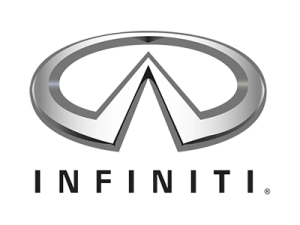 Infiniti is a luxury automotive brand launched by Nissan in 1989 in the United States. It was introduced as a response to the successful luxury brands from Germany, such as BMW and Mercedes-Benz. In the early years, Infiniti gained popularity with its stylish designs and advanced technology, positioning itself as a strong competitor in the luxury automobile market. Later, Infiniti was making efforts to expand its presence in emerging markets such as China to drive growth and regain its position in the luxury car market.
Infiniti is a luxury automotive brand launched by Nissan in 1989 in the United States. It was introduced as a response to the successful luxury brands from Germany, such as BMW and Mercedes-Benz. In the early years, Infiniti gained popularity with its stylish designs and advanced technology, positioning itself as a strong competitor in the luxury automobile market. Later, Infiniti was making efforts to expand its presence in emerging markets such as China to drive growth and regain its position in the luxury car market.
As of the latest, Infiniti has announced its plans to transition from internal combustion engines (ICE) to become an all-electric brand by 2025. This strategic move is in line with the global shift towards sustainable mobility. Infiniti has also revealed its first fully electric SUV, the QX Inspiration, which showcases the brand’s future design language and commitment to electrification.
 Isuzu is a Japanese automaker that was founded in 1916. The company initially focused on producing trucks and commercial vehicles before expanding into manufacturing passenger cars. Isuzu gained popularity globally for its reliable and durable vehicles, especially its diesel engines.
Isuzu is a Japanese automaker that was founded in 1916. The company initially focused on producing trucks and commercial vehicles before expanding into manufacturing passenger cars. Isuzu gained popularity globally for its reliable and durable vehicles, especially its diesel engines.
In recent years, Isuzu has been focusing on strengthening its presence in the SUV and pickup truck market. The company has successfully launched new models like the Isuzu MU-X and D-Max, which have gained recognition for their performance and ruggedness. Isuzu has also been expanding its market reach through strategic collaborations and partnerships with other automakers. Currently, the company is investing in electric vehicle technology to meet changing consumer demands and environmental regulations.
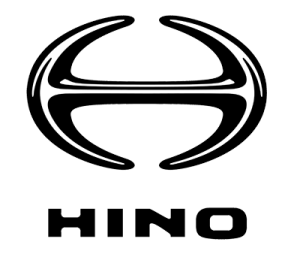 Hino Motors, Ltd. is a Japanese automobile manufacturer founded in 1942. Originally a subsidiary of Toyota Motor Corporation, Hino started off producing heavy-duty trucks and buses. Over the years, the company has expanded its product range and established a global presence. Currently, Hino is experiencing steady growth in the market. In 2020, the company reported an increase in sales, mainly driven by a strong demand for commercial vehicles in the Asian market. Hino continues to focus on innovation and sustainability, with the development of electric and hybrid vehicles to meet the evolving demands of the industry.
Hino Motors, Ltd. is a Japanese automobile manufacturer founded in 1942. Originally a subsidiary of Toyota Motor Corporation, Hino started off producing heavy-duty trucks and buses. Over the years, the company has expanded its product range and established a global presence. Currently, Hino is experiencing steady growth in the market. In 2020, the company reported an increase in sales, mainly driven by a strong demand for commercial vehicles in the Asian market. Hino continues to focus on innovation and sustainability, with the development of electric and hybrid vehicles to meet the evolving demands of the industry.
Despite the challenges posed by the COVID-19 pandemic, Hino’s sales have shown resilience. The company has adapted to the changing market conditions by implementing remote work and safety measures at their manufacturing facilities. Hino has also recently announced plans to expand their presence in North America, aiming to achieve a 10% increase in sales in the region by 2025.
 Datsun is a Japanese automotive brand that was established in 1931. It quickly gained popularity for its affordable and reliable vehicles, becoming one of Japan’s leading car manufacturers. In 1986, Datsun was integrated into Nissan, and the brand name was discontinued. During its retirement, there had been talks of reviving the Datsun brand to target emerging markets with budget-friendly vehicles. In 2013, Datsun was reintroduced by Nissan, starting with the launch of the Datsun Go in India, but the brand was again discontinued in 2022.
Datsun is a Japanese automotive brand that was established in 1931. It quickly gained popularity for its affordable and reliable vehicles, becoming one of Japan’s leading car manufacturers. In 1986, Datsun was integrated into Nissan, and the brand name was discontinued. During its retirement, there had been talks of reviving the Datsun brand to target emerging markets with budget-friendly vehicles. In 2013, Datsun was reintroduced by Nissan, starting with the launch of the Datsun Go in India, but the brand was again discontinued in 2022.
When it comes to Japanese car brands, there are a few that stand out for their reliability and innovation. But before diving into the details, it’s always a good idea to run a VIN check to ensure you have all the necessary information about the vehicle’s history and authenticity.
Brief History of the Japanese Auto Industry
The Japanese auto industry has a long and storied history that dates back to the early 1900s. It all began with the establishment of the first Japanese automobile manufacturer, Tokyo Electric Automobile Company, in 1907. However, due to limited resources and technology, the development of the industry was slow in its early years.The breakthrough for the Japanese auto industry came after World War II. Japan, devastated by the war, experienced a period of rapid economic growth and reconstruction. The Japanese government recognized the auto industry’s potential as a means to boost the country’s economy and supported its development through various policies and investment incentives.
As a result, major Japanese automakers such as Toyota, Nissan, Honda, and Mazda started emerging in the 1950s. These companies focused on producing small, fuel-efficient vehicles that suited the Japanese market’s needs and demands. They implemented innovative manufacturing techniques like the Toyota Production System, which revolutionized the industry by introducing concepts like just-in-time manufacturing and continuous improvement.
With the rapid expansion of the Japanese auto industry and an increasing number of vehicles on the roads, the need for efficient identification and registration systems became apparent, especially when it comes to combatting crime. In response to this, the Japanese government introduced the Vehicle Identification Number (VIN) system and a more organized license plate numbering system at some point — both of which were first introduced in North America.
Despite the post-war challenges, the industry rebounded through the 50s and 60s. Companies like Toyota and Nissan focused on producing small, fuel-efficient cars that were affordable for the average Japanese consumer. These compact cars rapidly gained popularity, and by the late 1960s, Japanese automakers were exporting their vehicles to international markets, particularly the United States.
The 1970s were a significant turning point for the Japanese auto industry. The 1973 oil crisis highlighted the importance of fuel efficiency, and Japanese automakers were well-positioned with their compact cars. The industry experienced exponential growth during this time, with Japanese cars becoming known for their reliability, fuel efficiency, and affordability.
Japanese automakers continued to innovate and expand their market share in the following decades. Toyota introduced the first mass-produced hybrid car, the Prius, in 1997, which catapulted the company to the forefront of green automotive technology. The 1990s also saw the rise of luxury Japanese brands like Lexus and Acura, which challenged traditional European luxury brands.
However, the Japanese auto industry faced significant challenges in the 2000s. The global financial crisis of 2008 affected car sales worldwide, including in Japan. Additionally, intense competition from South Korean and Chinese automakers posed a threat to Japanese manufacturers.
In recent years, Japanese automakers have focused on developing electric vehicles (EVs) and autonomous driving technologies to stay at the forefront of automotive innovation. They continue to dominate global markets, particularly in the compact car and hybrid segments.
The Japanese auto industry has come a long way since its humble beginnings in the early 1900s. Through continuous innovation, relentless pursuit of quality, and a focus on customer satisfaction, Japanese automakers have established themselves as leaders in the global automotive industry.
Mass Market Japanese Car Brands
Mass market Japanese car brands refer to popular automobile manufacturers based in Japan that produce affordable and reliable vehicles for the general public. These brands have gained global recognition for their high-quality engineering, fuel efficiency, and durability. As with any vehicle purchases, it is advisable to read a vehicle history report before giving up your hard-earned money. Some of the well-known mass-market Japanese car brands are as follows; Toyota was founded in 1937 by Kiichiro Toyoda as a spin-off from his father’s company, Toyoda Automatic Loom Works. It quickly grew to become one of the largest automakers in the world, known for its reliable and fuel-efficient vehicles. By the early 2000s, Toyota faced significant challenges due to a series of recalls and supply chain disruptions, but it managed to recover and regain its position as a leading player in the global automotive market.
Toyota was founded in 1937 by Kiichiro Toyoda as a spin-off from his father’s company, Toyoda Automatic Loom Works. It quickly grew to become one of the largest automakers in the world, known for its reliable and fuel-efficient vehicles. By the early 2000s, Toyota faced significant challenges due to a series of recalls and supply chain disruptions, but it managed to recover and regain its position as a leading player in the global automotive market.
In recent years, Toyota has been focusing on expanding its lineup of electric and hybrid vehicles as part of its commitment to sustainability. The company introduced popular models like the Prius and now offers a wide range of hybrid options across its brands. Additionally, Toyota has been investing heavily in autonomous vehicle technology and has partnered with other companies to develop self-driving cars. Despite the challenges posed by the COVID-19 pandemic, Toyota has shown resilience and continues to innovate and adapt to the changing market demands.
 Honda is a Japanese automobile manufacturer that was founded in 1948 by Soichiro Honda. The company initially produced motorcycles and later expanded to include automobiles. Honda quickly gained popularity for its reliable and fuel-efficient vehicles, and by the 1970s, it had become a major player in the global automotive market.
As of the latest, Honda has focused on developing hybrid and electric vehicles to meet the growing demand for more environmentally friendly transportation options. The company has also made significant investments in autonomous driving technologies and has been collaborating with other companies to develop self-driving cars. This is despite the fact that the company experienced a decline in sales and production as a result of disrupted supply chains and decreased consumer demand.
Honda is a Japanese automobile manufacturer that was founded in 1948 by Soichiro Honda. The company initially produced motorcycles and later expanded to include automobiles. Honda quickly gained popularity for its reliable and fuel-efficient vehicles, and by the 1970s, it had become a major player in the global automotive market.
As of the latest, Honda has focused on developing hybrid and electric vehicles to meet the growing demand for more environmentally friendly transportation options. The company has also made significant investments in autonomous driving technologies and has been collaborating with other companies to develop self-driving cars. This is despite the fact that the company experienced a decline in sales and production as a result of disrupted supply chains and decreased consumer demand.
 Subaru is a Japanese automobile manufacturer that was founded in 1953. They are known for producing reliable and durable vehicles, especially their line of all-wheel drive vehicles. Subaru has grown steadily over the years and has gained a reputation for their commitment to safety and environmental sustainability.
Subaru is a Japanese automobile manufacturer that was founded in 1953. They are known for producing reliable and durable vehicles, especially their line of all-wheel drive vehicles. Subaru has grown steadily over the years and has gained a reputation for their commitment to safety and environmental sustainability.
Lately, Subaru has experienced significant growth and has seen record-breaking sales numbers. They have focused on expanding their presence in key markets such as the United States, where they have partnered with other automobile manufacturers to further their reach. Subaru has also made advancements in their technology, including the introduction of hybrid and electric models to cater to the growing demand for eco-friendly vehicles.
 Nissan, a Japanese automaker, was founded in 1933 and has since become one of the largest car manufacturers in the world. Known for its innovation and technological advancements, Nissan has produced iconic models such as the Nissan GT-R and the Nissan Leaf, the world’s best-selling electric car.
Nissan, a Japanese automaker, was founded in 1933 and has since become one of the largest car manufacturers in the world. Known for its innovation and technological advancements, Nissan has produced iconic models such as the Nissan GT-R and the Nissan Leaf, the world’s best-selling electric car.
Nissan announced plans to further cut production and models as part of its restructuring efforts to streamline operations and achieve profitability. The company aims to focus on core markets, including China, the United States, and Japan, while reducing its presence in other regions. Additionally, Nissan is working on expanding its electric vehicle lineup and introducing advanced autonomous driving technologies to regain its position in the competitive automotive market.
 Mazda was founded in 1920 in Hiroshima, Japan, and initially produced three-wheeled trucks. In the 1960s, they began producing small passenger cars and gained recognition for their rotary engine technology. Throughout the years, Mazda became known for their sporty and fuel-efficient vehicles.
Mazda was founded in 1920 in Hiroshima, Japan, and initially produced three-wheeled trucks. In the 1960s, they began producing small passenger cars and gained recognition for their rotary engine technology. Throughout the years, Mazda became known for their sporty and fuel-efficient vehicles.
Mazda has been focusing on electric vehicles to align with the growing demand for sustainable transportation. In 2020, they introduced their first fully electric model, the Mazda MX-30. Additionally, Mazda has been implementing advanced safety features and driver-assistance technologies in their newer models. Despite challenges faced by the automotive industry, Mazda continues to innovate and evolve to meet the changing needs of consumers.
 Mitsubishi was founded in 1870 as a shipping company in Japan and later expanded into various industries including mining, shipbuilding, and automotive. In the 1970s and 1980s, Mitsubishi became known for its high-performance vehicles and entered into partnerships with other automakers. In the past few years, Mitsubishi has faced various challenges, including a scandal in 2016 where it was revealed that the company had been manipulating fuel economy data. As a result, Mitsubishi’s reputation was significantly damaged, and the company experienced a decline in sales.
Mitsubishi was founded in 1870 as a shipping company in Japan and later expanded into various industries including mining, shipbuilding, and automotive. In the 1970s and 1980s, Mitsubishi became known for its high-performance vehicles and entered into partnerships with other automakers. In the past few years, Mitsubishi has faced various challenges, including a scandal in 2016 where it was revealed that the company had been manipulating fuel economy data. As a result, Mitsubishi’s reputation was significantly damaged, and the company experienced a decline in sales.
Mitsubishi has been working on rebuilding its image and has introduced new electric and hybrid vehicles to cater to the growing demand for eco-friendly cars. In 2021, the company announced plans to invest heavily in electric vehicles and aims to have electrified vehicles account for 50% of its sales by 2030. Mitsubishi is also focusing on expanding its presence in emerging markets such as India, where it plans to launch multiple new models in the coming years.
 Suzuki is a Japanese automotive company founded in 1909 by Michio Suzuki. It started as a loom manufacturer and later expanded to produce motorcycles and automobiles. In the 1980s, Suzuki became known for its popular line of small cars and off-road vehicles. Suzuki has faced some challenges in the market. It struggled to gain a significant market share in countries like the United States and Europe. However, the company has experienced growth in emerging markets like India and has focused on producing more fuel-efficient vehicles to stay competitive in the global market.
Suzuki is a Japanese automotive company founded in 1909 by Michio Suzuki. It started as a loom manufacturer and later expanded to produce motorcycles and automobiles. In the 1980s, Suzuki became known for its popular line of small cars and off-road vehicles. Suzuki has faced some challenges in the market. It struggled to gain a significant market share in countries like the United States and Europe. However, the company has experienced growth in emerging markets like India and has focused on producing more fuel-efficient vehicles to stay competitive in the global market.
The company has also made advancements in electric and hybrid vehicle technology, with the launch of the Suzuki Across plug-in hybrid SUV. Additionally, Suzuki has been collaborating with other automakers to develop new technologies and expand its presence in international markets.
Japanese Luxury Car Brands
Japanese luxury car brands are known for combining elegance and reliability. These brands offer a wide range of high-end features, luxurious interiors, and cutting-edge technology, making them highly sought after by car enthusiasts worldwide. Lexus is a luxury car brand that was launched by Toyota in 1989. It was created to compete with other high-end car manufacturers such as Mercedes-Benz and BMW. Lexus quickly gained popularity for its reliability, comfort, and stylish designs.
Lexus is a luxury car brand that was launched by Toyota in 1989. It was created to compete with other high-end car manufacturers such as Mercedes-Benz and BMW. Lexus quickly gained popularity for its reliability, comfort, and stylish designs.
Since 2021, the market for Lexus cars has continued to be strong. The brand enjoys a loyal customer base and has successfully expanded its offerings to include hybrid and electric vehicles. Lexus vehicles are known for their advanced technology, refined interiors, and smooth performance.
 Acura is a luxury car brand that was launched by the Japanese automaker Honda in 1986. It was introduced to the North American market as a way for Honda to compete with other luxury car brands such as Lexus and Infiniti. Over the years, Acura has gained recognition for its stylish designs, advanced technology, and performance-oriented vehicles.
Acura is a luxury car brand that was launched by the Japanese automaker Honda in 1986. It was introduced to the North American market as a way for Honda to compete with other luxury car brands such as Lexus and Infiniti. Over the years, Acura has gained recognition for its stylish designs, advanced technology, and performance-oriented vehicles.
In the latest market, Acura continues to be a strong player in the luxury car market. The brand has expanded its lineup with new models like the Acura TLX and Acura RDX, both of which have been well-received by consumers and critics. Acura also focuses on integrating advanced safety features and cutting-edge technology into its vehicles, positioning itself as a forward-thinking and innovative brand in the market.
 Infiniti is a luxury automotive brand launched by Nissan in 1989 in the United States. It was introduced as a response to the successful luxury brands from Germany, such as BMW and Mercedes-Benz. In the early years, Infiniti gained popularity with its stylish designs and advanced technology, positioning itself as a strong competitor in the luxury automobile market. Later, Infiniti was making efforts to expand its presence in emerging markets such as China to drive growth and regain its position in the luxury car market.
Infiniti is a luxury automotive brand launched by Nissan in 1989 in the United States. It was introduced as a response to the successful luxury brands from Germany, such as BMW and Mercedes-Benz. In the early years, Infiniti gained popularity with its stylish designs and advanced technology, positioning itself as a strong competitor in the luxury automobile market. Later, Infiniti was making efforts to expand its presence in emerging markets such as China to drive growth and regain its position in the luxury car market.
As of the latest, Infiniti has announced its plans to transition from internal combustion engines (ICE) to become an all-electric brand by 2025. This strategic move is in line with the global shift towards sustainable mobility. Infiniti has also revealed its first fully electric SUV, the QX Inspiration, which showcases the brand’s future design language and commitment to electrification.
Major Truck Brands
These brands refer to the well-known and established manufacturers of trucks that are widely recognized in the automotive industry. These brands specialize in producing a variety of trucks, ranging from light-duty pickup trucks to heavy-duty commercial vehicles. Some notable major truck brands offer a diverse range of models and features to cater to different customer needs, so you better run a VIN number lookup on a prospective truck to see if it meets your needs and wants. Isuzu is a Japanese automaker that was founded in 1916. The company initially focused on producing trucks and commercial vehicles before expanding into manufacturing passenger cars. Isuzu gained popularity globally for its reliable and durable vehicles, especially its diesel engines.
Isuzu is a Japanese automaker that was founded in 1916. The company initially focused on producing trucks and commercial vehicles before expanding into manufacturing passenger cars. Isuzu gained popularity globally for its reliable and durable vehicles, especially its diesel engines.
In recent years, Isuzu has been focusing on strengthening its presence in the SUV and pickup truck market. The company has successfully launched new models like the Isuzu MU-X and D-Max, which have gained recognition for their performance and ruggedness. Isuzu has also been expanding its market reach through strategic collaborations and partnerships with other automakers. Currently, the company is investing in electric vehicle technology to meet changing consumer demands and environmental regulations.
 Hino Motors, Ltd. is a Japanese automobile manufacturer founded in 1942. Originally a subsidiary of Toyota Motor Corporation, Hino started off producing heavy-duty trucks and buses. Over the years, the company has expanded its product range and established a global presence. Currently, Hino is experiencing steady growth in the market. In 2020, the company reported an increase in sales, mainly driven by a strong demand for commercial vehicles in the Asian market. Hino continues to focus on innovation and sustainability, with the development of electric and hybrid vehicles to meet the evolving demands of the industry.
Hino Motors, Ltd. is a Japanese automobile manufacturer founded in 1942. Originally a subsidiary of Toyota Motor Corporation, Hino started off producing heavy-duty trucks and buses. Over the years, the company has expanded its product range and established a global presence. Currently, Hino is experiencing steady growth in the market. In 2020, the company reported an increase in sales, mainly driven by a strong demand for commercial vehicles in the Asian market. Hino continues to focus on innovation and sustainability, with the development of electric and hybrid vehicles to meet the evolving demands of the industry.
Despite the challenges posed by the COVID-19 pandemic, Hino’s sales have shown resilience. The company has adapted to the changing market conditions by implementing remote work and safety measures at their manufacturing facilities. Hino has also recently announced plans to expand their presence in North America, aiming to achieve a 10% increase in sales in the region by 2025.
 Datsun is a Japanese automotive brand that was established in 1931. It quickly gained popularity for its affordable and reliable vehicles, becoming one of Japan’s leading car manufacturers. In 1986, Datsun was integrated into Nissan, and the brand name was discontinued. During its retirement, there had been talks of reviving the Datsun brand to target emerging markets with budget-friendly vehicles. In 2013, Datsun was reintroduced by Nissan, starting with the launch of the Datsun Go in India, but the brand was again discontinued in 2022.
Datsun is a Japanese automotive brand that was established in 1931. It quickly gained popularity for its affordable and reliable vehicles, becoming one of Japan’s leading car manufacturers. In 1986, Datsun was integrated into Nissan, and the brand name was discontinued. During its retirement, there had been talks of reviving the Datsun brand to target emerging markets with budget-friendly vehicles. In 2013, Datsun was reintroduced by Nissan, starting with the launch of the Datsun Go in India, but the brand was again discontinued in 2022.
